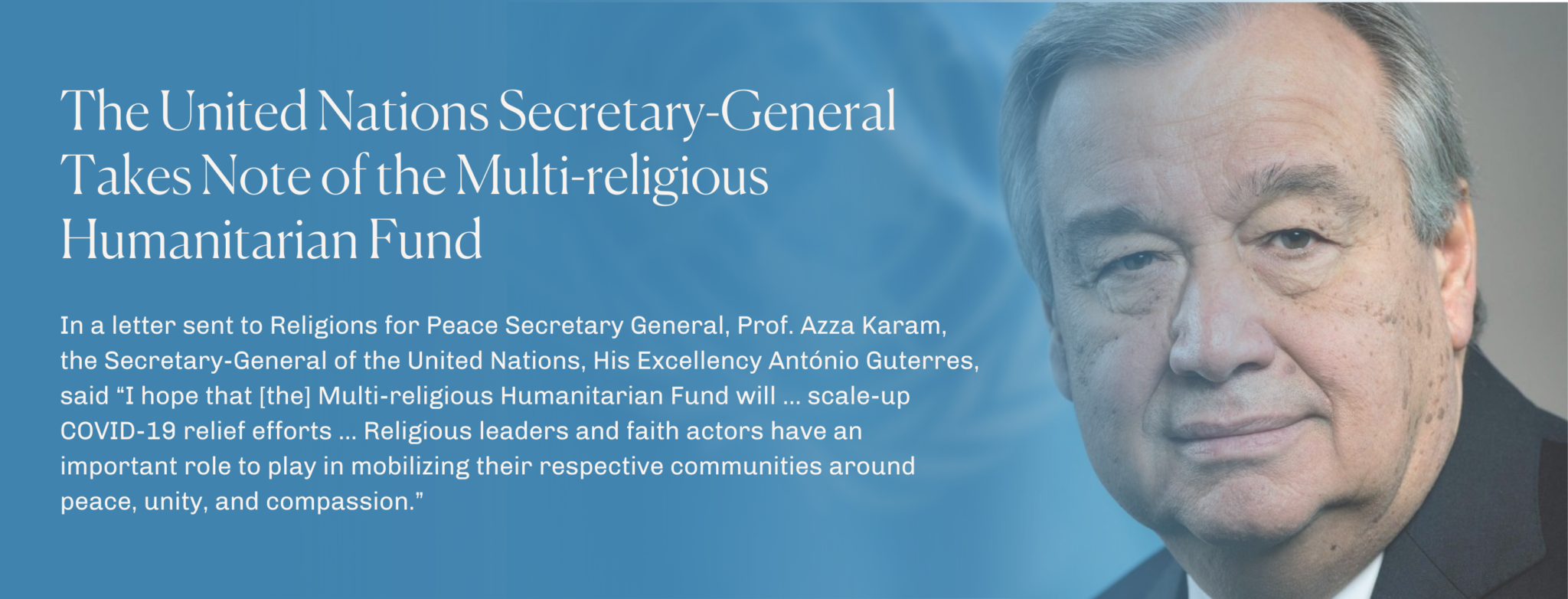The Fund is currently financing 20 multi-faith projects around the world and as its impact becomes increasingly evident, more individuals, organisations, & foundations are choosing to invest in the idea that we can accomplish more together than apart.
Our ImpactRecent Stories Supported by the Fund —
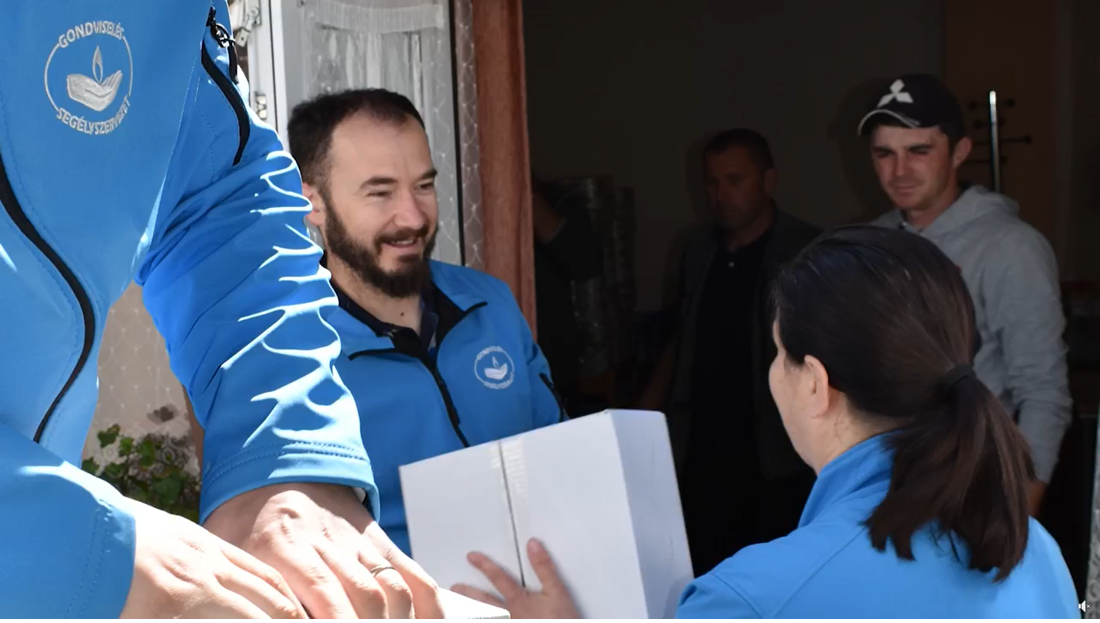
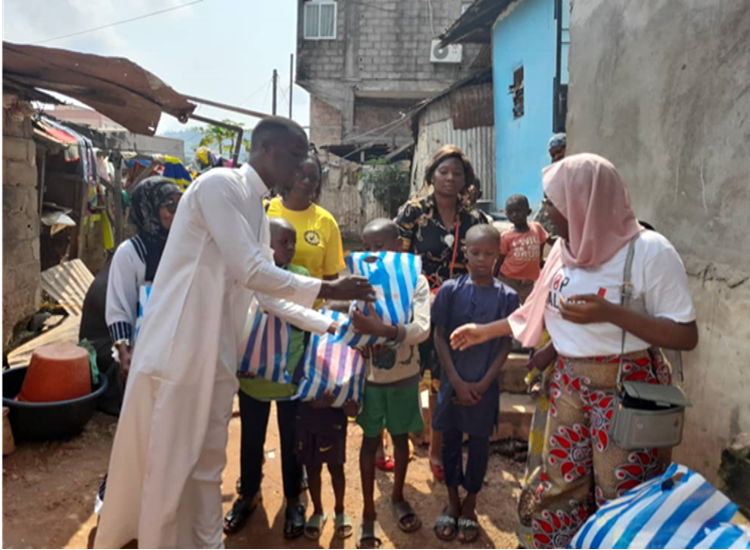
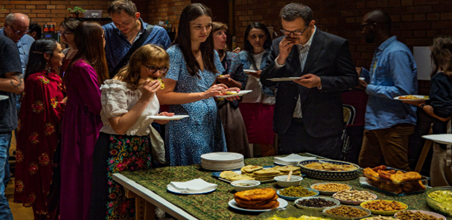
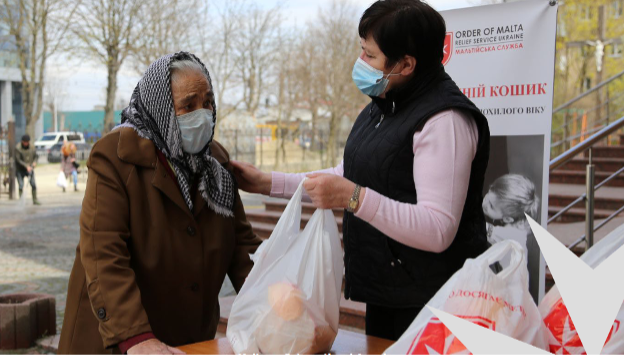
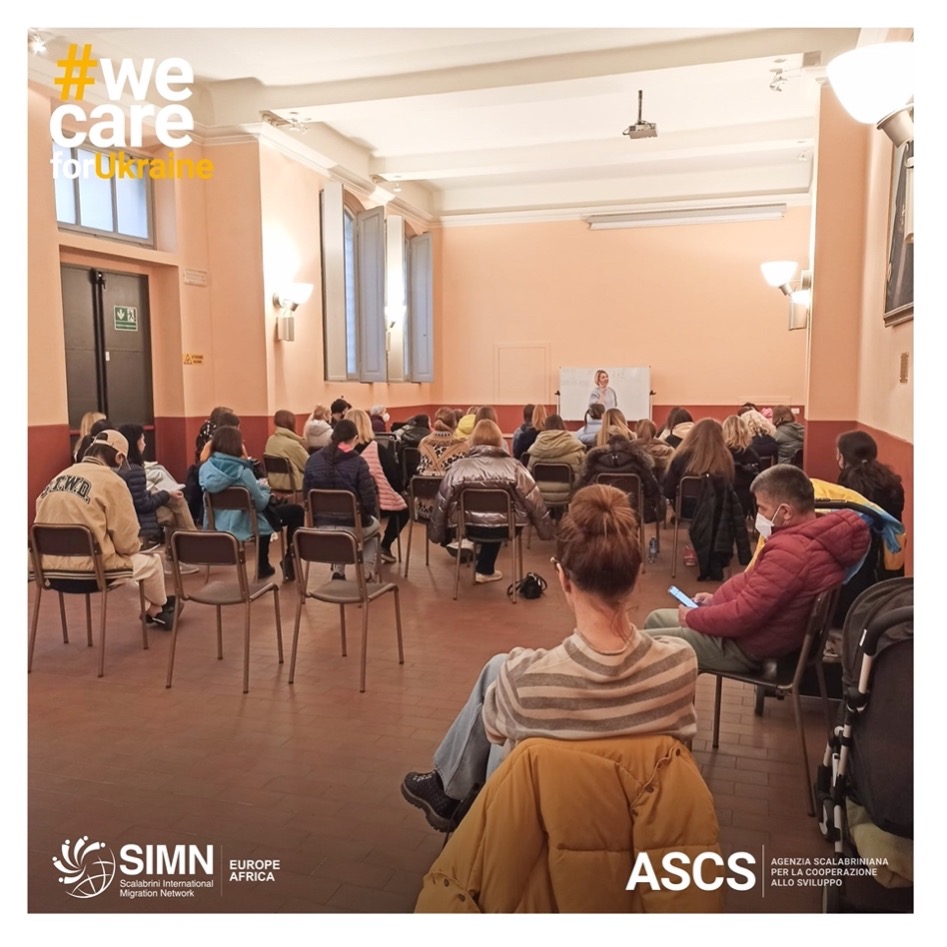
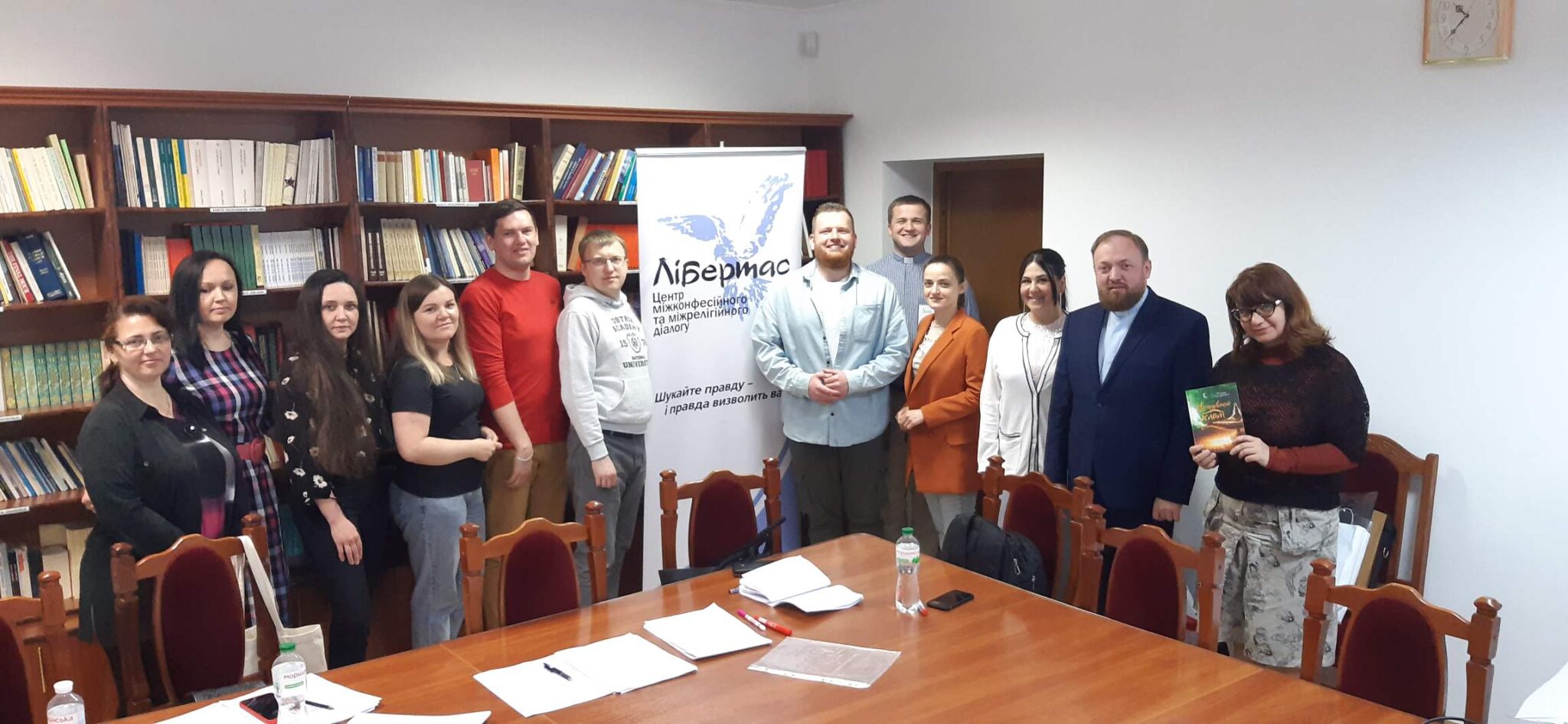
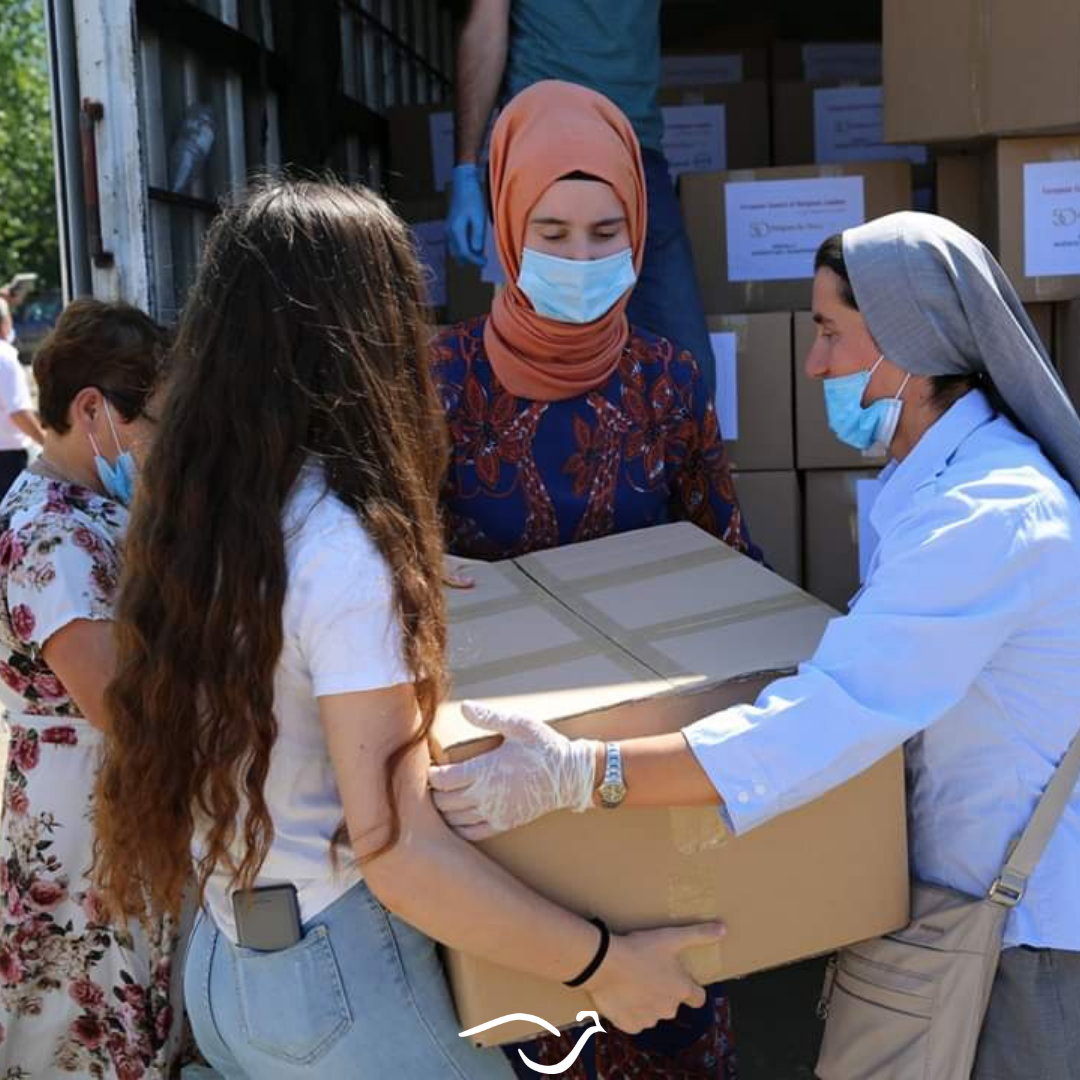
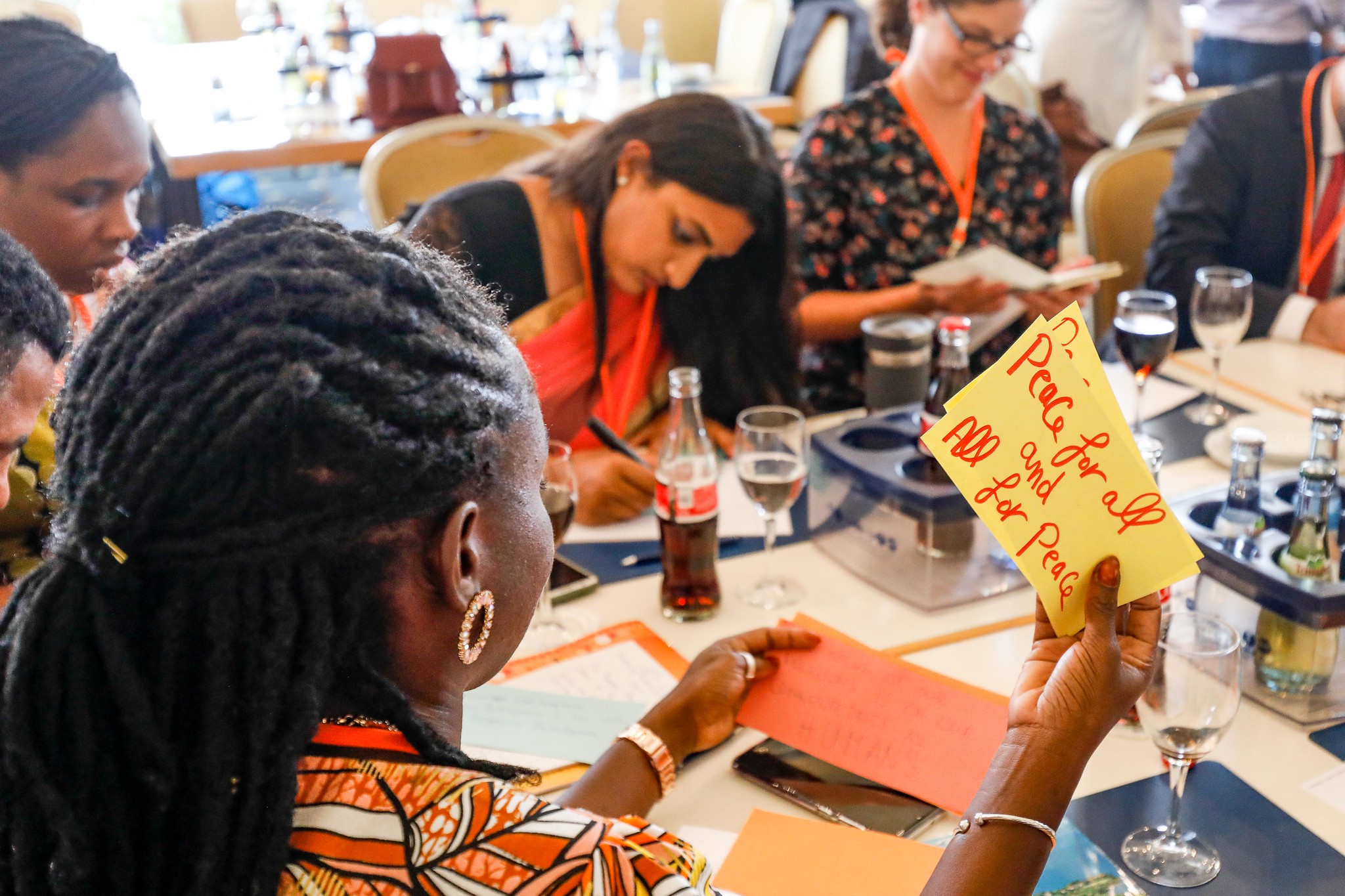
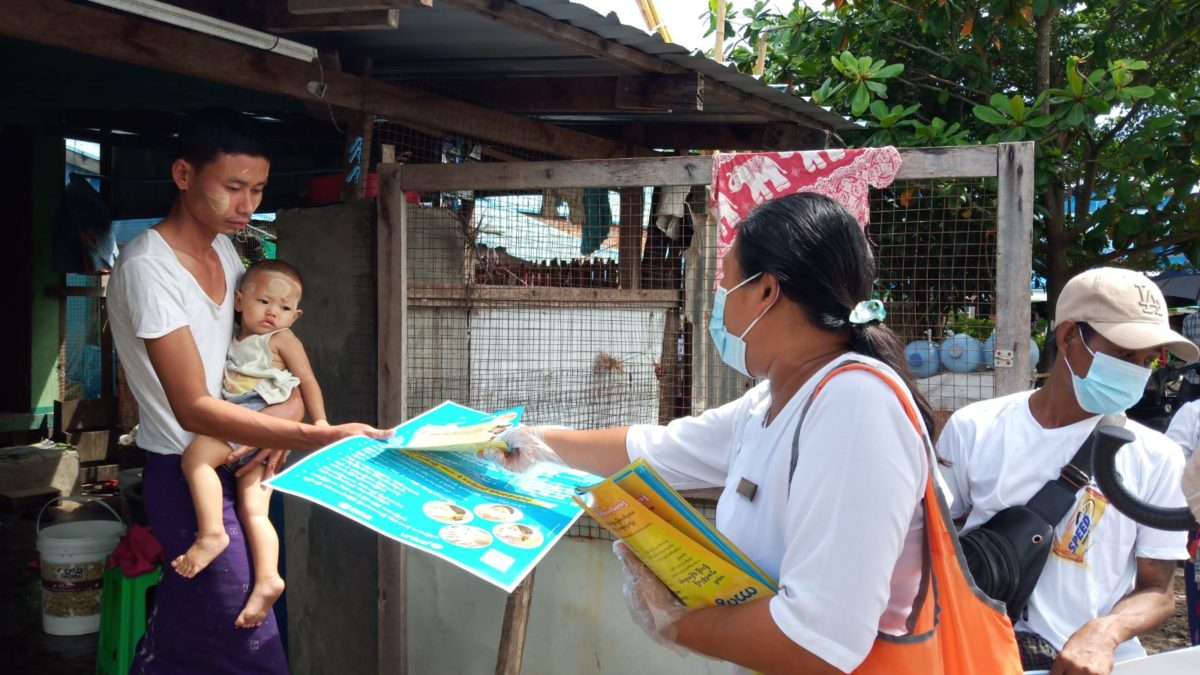
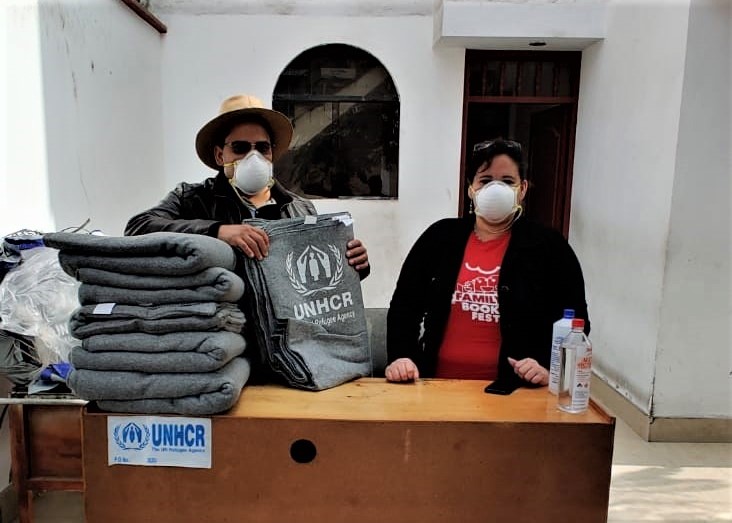
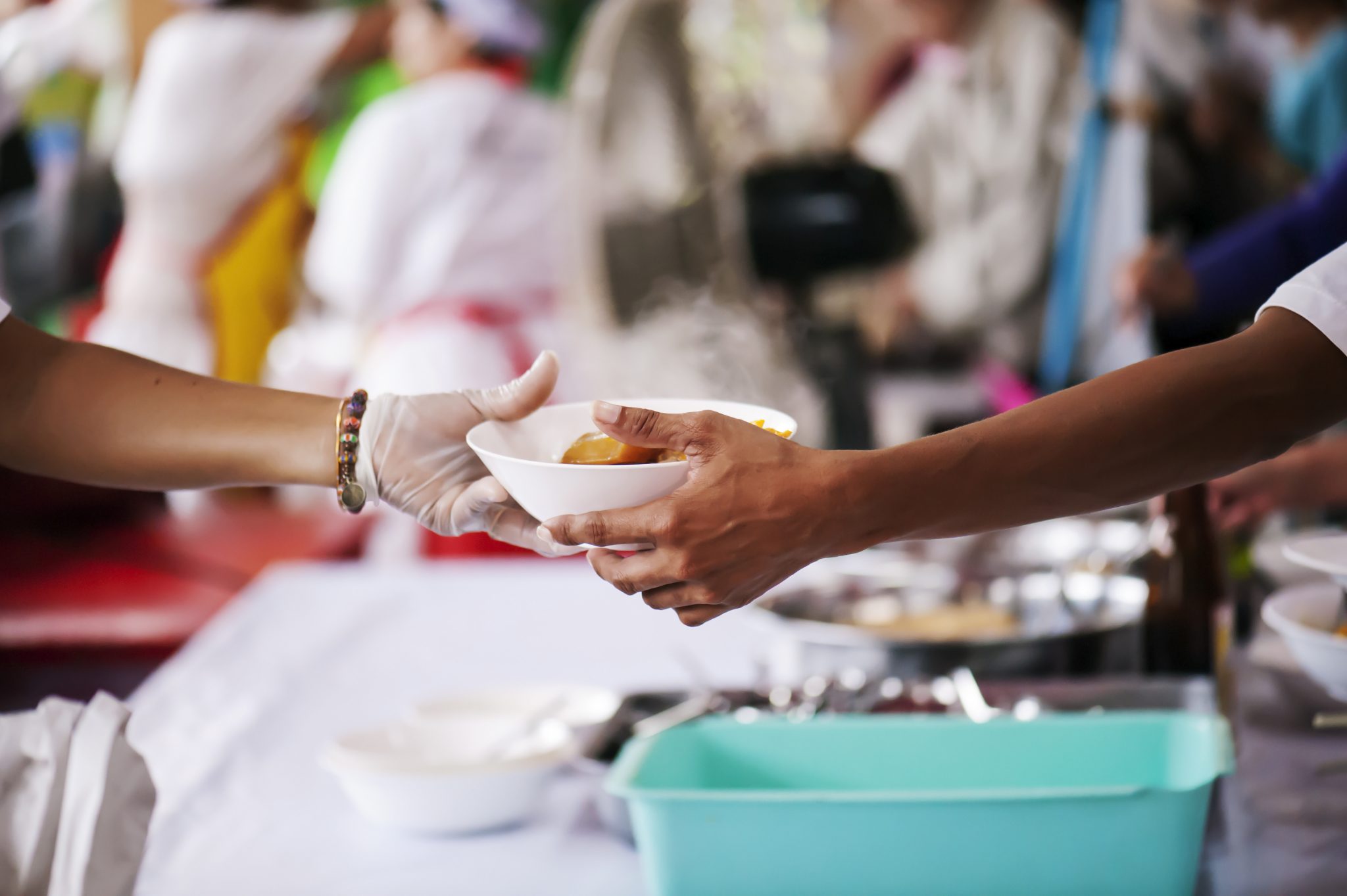
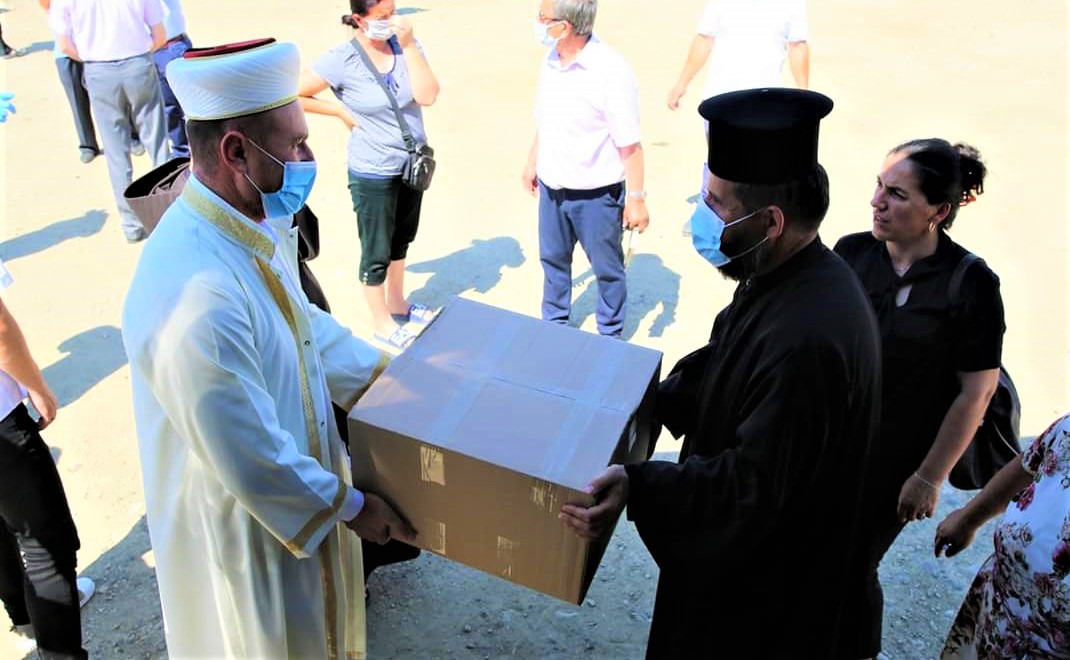
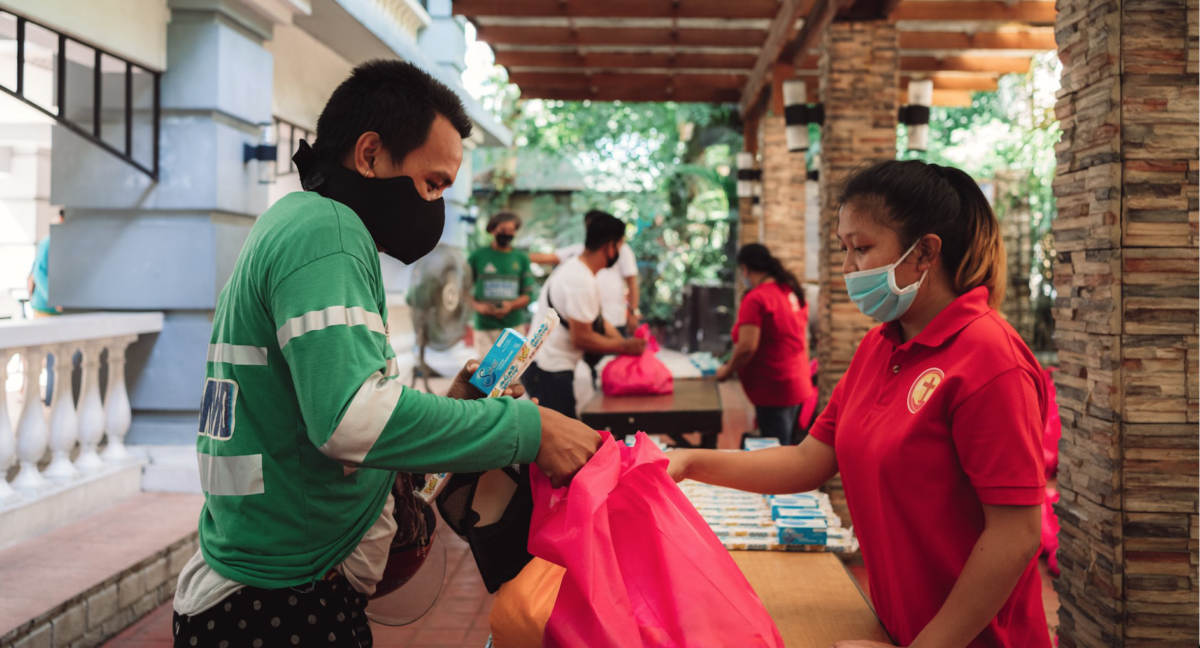
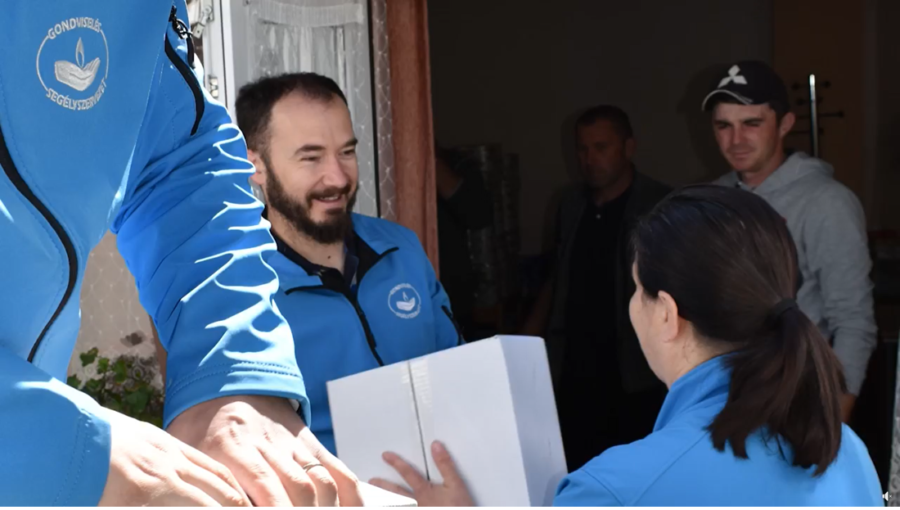
Religions for Peace Multi-Religious Humanitarian Fund Supports Refugees and Internally Displaced Peoples from Ukraine
Bearing witness to the suffering and immediate needs of their neighbours, Asociația Gondviselés Segélyszervezet, the charity organisation of the Hungarian Unitarian Church in Romania, partnered with local religious and faith communities to mobilise a humanitarian response that continues to ease the suffering of several Ukrainian refugees in Romania and IDPs within Ukraine.

Religions for Peace’s Multi-Religious Humanitarian Fund Supports Emergency Humanitarian Assistance to Refugees and Internally Displaced Peoples by Cameroonian Association for Interreligious Dialogue (ACADIR)
The Cameroonian Association for Interreligious Dialogue (ACADIR), a grantee of the Religions for Peace Multi-Religious Humanitarian Fund (MRHF), brings together local religious and faith communities for dialogue and collaboration on peacebuilding within and beyond Cameroon. With our support, ACADIR was able to provide food and emergency humanitarian assistance to 300,000 refugees and internally displaced peoples (IDPs); restore 1,000 internally displaced children’s access to education; and train 10 local community leaders in birth registration.

Religions for Peace’s Multi-Religious Humanitarian Fund Supports Space of Public Activities by Salam Lab
In Kraków, Poland, the Action for Peace Laboratory Association (Salam Lab), a grantee of the third phase of the Religions for Peace Multi-Religious Humanitarian Fund (MRHF), was able to create safe spaces for all who have been displaced by the conflict. Salam Lab is a non-governmental association based in Kraków, Poland, dedicated to promoting peace through coalition- and cooperation-building between various national and religious communities.

Religions for Peace’s Multi-Religious Humanitarian Fund Supports Crisis Response to Displaced People in Ukraine by Malteser International Order of Malta Worldwide Relief
Malteser International, a grantee of the third phase of the Religions for Peace Multi-Religious Humanitarian Fund (MRHF), is a worldwide humanitarian relief agency of the Sovereign Order of Malta dedicated to providing rapid relief and services to Internally Displaced Peoples and Refugees irrespective of religion, ethnicity, or political persuasion. With a longstanding presence and grassroots efforts in Ukraine and neighbouring countries since the 1990s, including a long-standing collaboration with Malteser Ukraine and Malteser Germany to provide warm meals in nation-wide soup kitchens, Malteser International was able to provide an immediate humanitarian response at the start of the conflict in Ukraine.
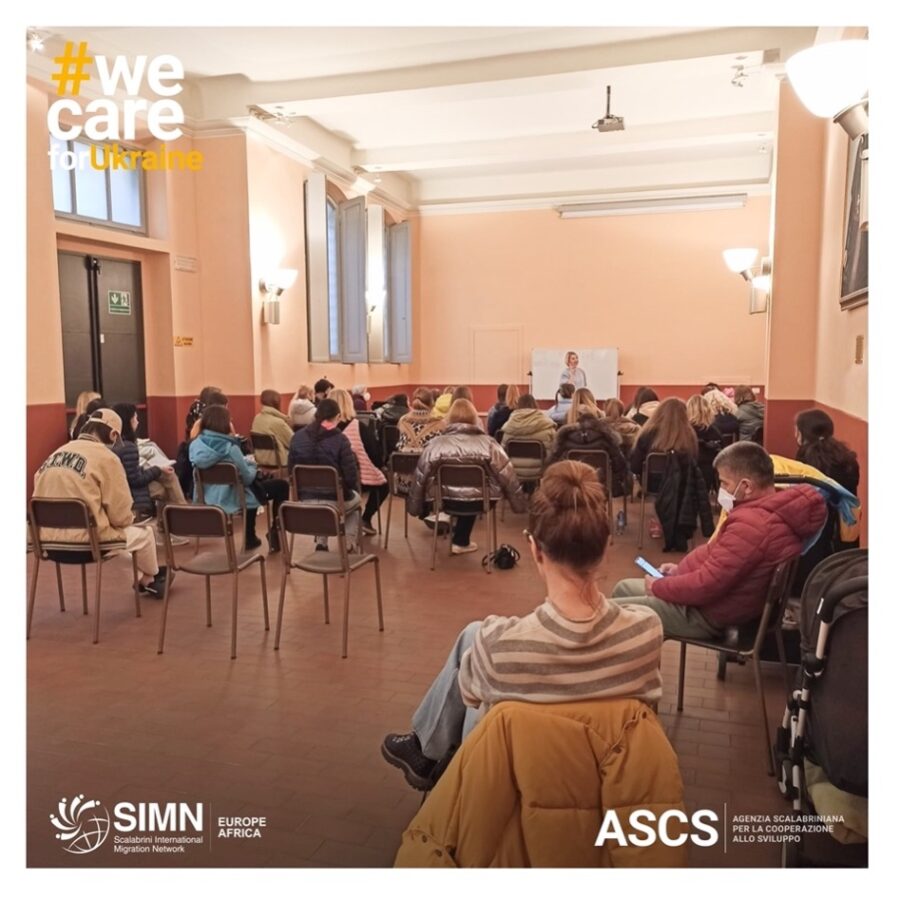
Religions for Peace Multi-Religious Humanitarian Fund Phase III-2022- “WeCareforUkraine in Italy”
Russia’s invasion of Ukraine has caused Europe’s most extensive and fastest-growing displacement crisis. Several initiatives have been launched in Italy to ensure and safeguard the effective reception and integration of Ukrainian refugees into society. To that end, the Agenzia Scalabriniana per la Cooperazione allo Sviluppo (ASCS), a grantee of Religions for Peace’s Third Phase of the Multi-Religious Humanitarian Fund (MRHF), initiated the #WeCareforUkraine campaign. ASCS, an agency for Development Cooperation, is the operational and social arm of the Missionaries of Saint Charles – Scalabrinians, a Roman Catholic Religious Order.
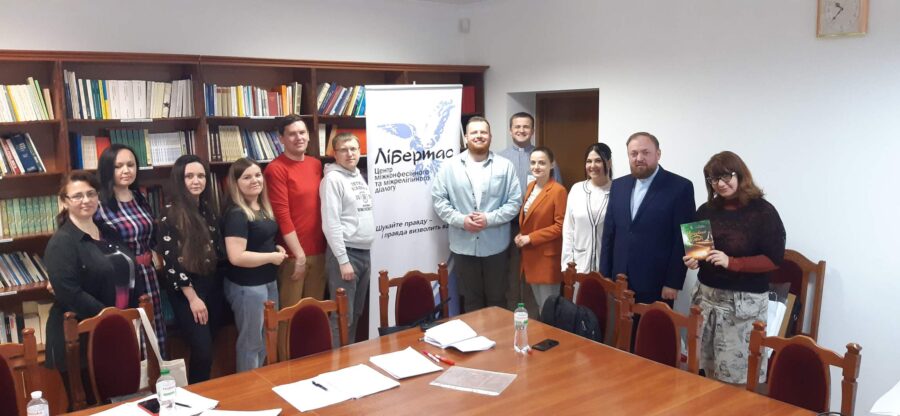
Multi-Religious Humanitarian Fund Supports Interfaith Rehabilitation Programme in Ukraine
As the Ukraine continues to destabilize, Christian (including Catholic, Orthodox, and Protestant), Jewish and Muslim communities, families and individuals, afflicted by the ongoing armed clashes in Ukraine came together from 1-5 June for ReStart, an interfaith rehabilitation training, facilitated by Libertas Center for Interconfessional and Interreligious Dialogue – the first grantee of the Religions for Peace Multi-Religious Humanitarian Fund, Phase III (2022).
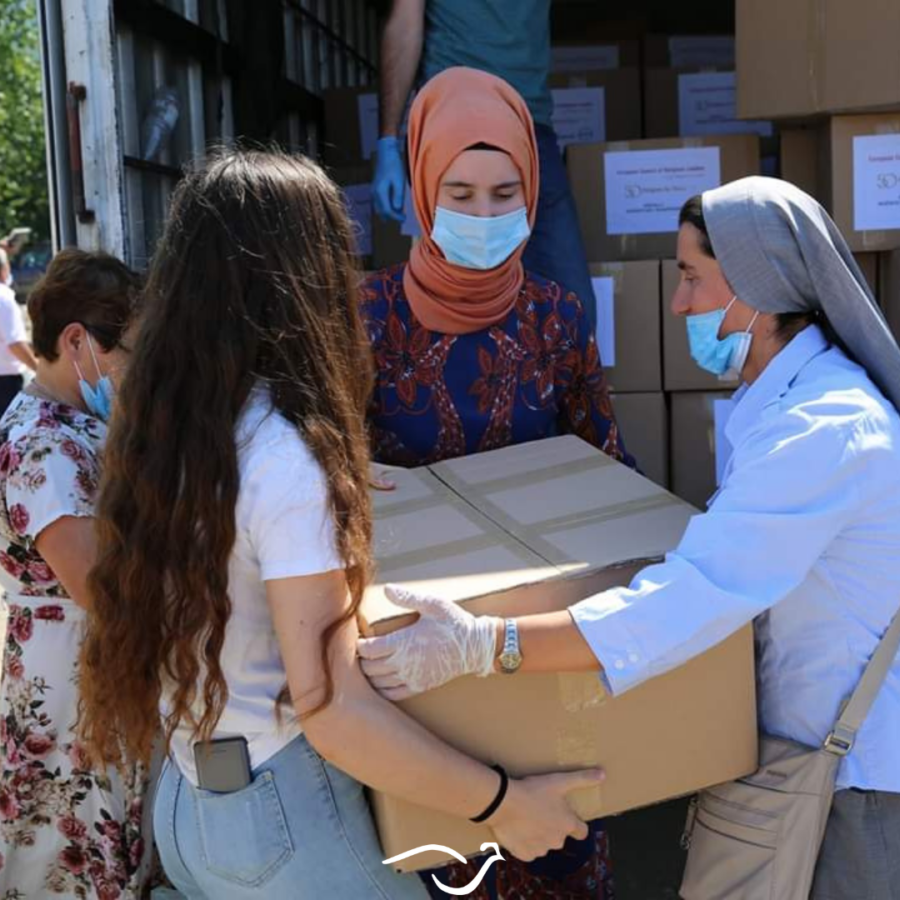
Phase III of Multi-Religious Humanitarian Fund Launched
For over 50 years, Religions for Peace and its network of six regional and over 90 national interreligious councils, youth and women of faith networks has consistently responded to global challenges by coordinating and supporting multi-religious efforts in building “positive peace,” which also includes delivering lifesaving support to communities in conflict situations.
Religions for Peace has launched the third phase of the Multi-Religious Humanitarian Fund to provide seed grants to interfaith initiatives that aid those displaced by conflict in –
- Ukraine
- Syria
- Yemen
- Myanmar
- Bangladesh
- Burkina Faso
- Cameroon
- Haiti
- Colombia
- Afghanistan
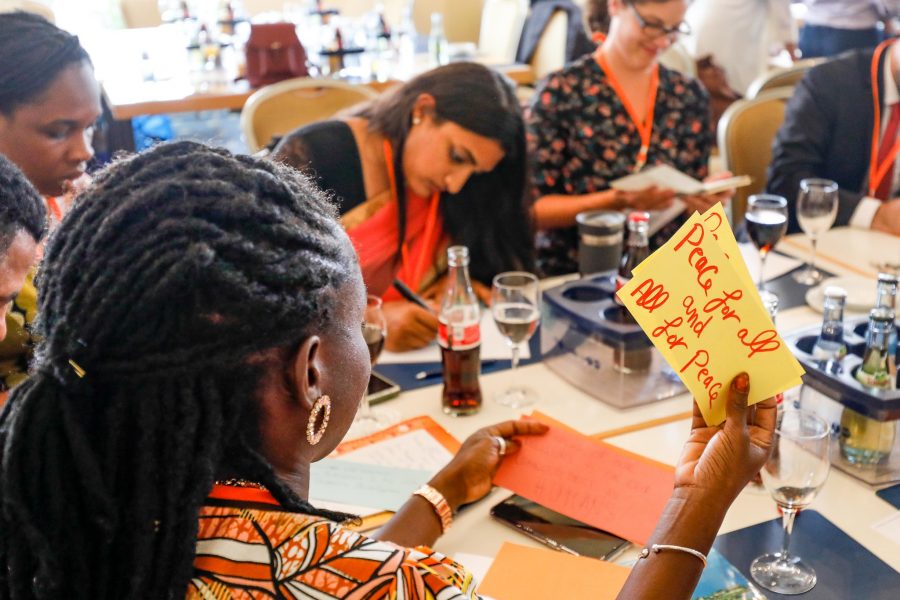
Faith Leaders Counter Rise of Gender-based Violence
In Colombia, religious leaders tapped into the resources of diverse faith communities to mobilise action against the shadow pandemic: violence against women and girls.
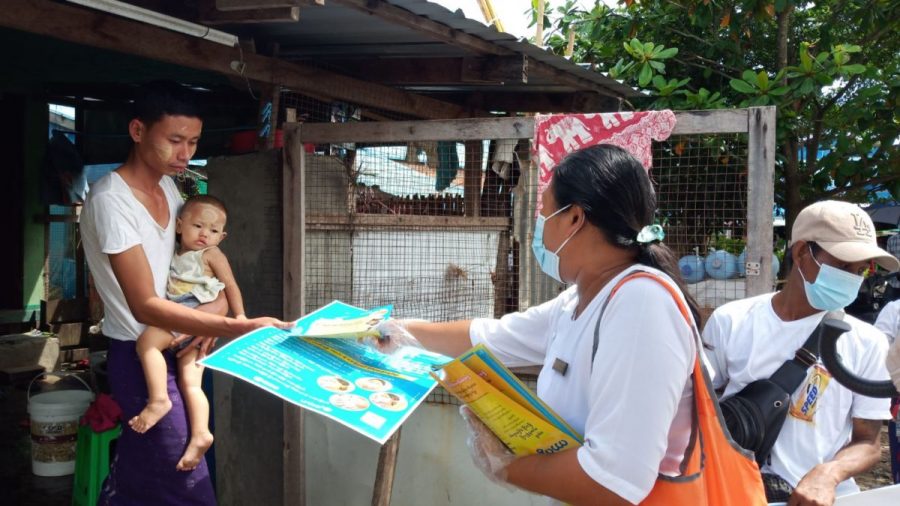
Interfaith COVID-19 Response Provides Medical Supplies, Plants Trees & Counters Misinformation
As COVID-19 cases continue to escalate in Myanmar, Religions for Peace’s interreligious council, Religions for Peace-Myanmar, immediately mobilised its vast interfaith network to provide front-line workers, hospitals, quarantine centres, and diverse communities in Yangon, Myitkyina and Lashio with direct humanitarian assistance.

Meet Magdaloys and Nolbis: Refugees Serving the Most Vulnerable Through Interfaith Work in Peru
Magdaloys Peña Gutierrez and her husband, Nolbis Espinosa Cruz, fled Cuba six years ago after facing continuous human rights violations for practicing their faith. In Peru, they set up an interfaith soup kitchen, providing hundreds of lunches for children living in extreme poverty.
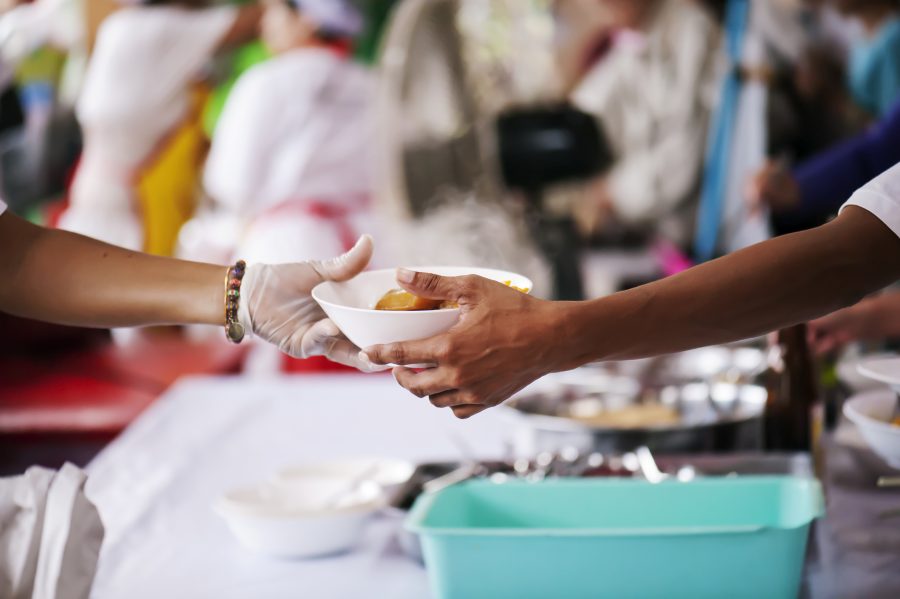
Religions for Peace Funds Multi-religious Actions on COVID-19 in 20 Countries
Religions for Peace, the world’s largest multi-religious platform with 90 national and 6 regional affiliates, launched the “Multi-religious Humanitarian Fund” (MRHF) in response to the COVID-19 pandemic.
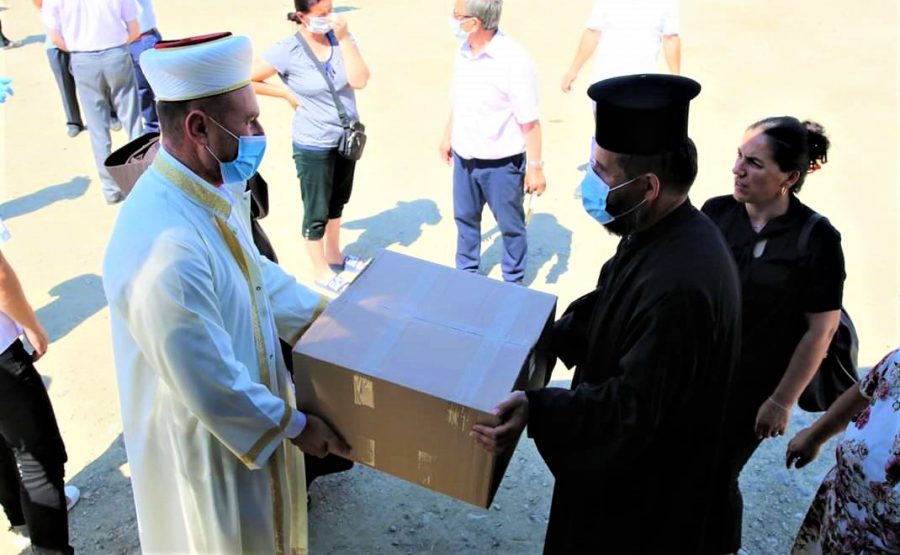
Distributing Urgent Supplies to Orphans and Vulnerable Families in Albania
On a cloudless day in northern Albania, a small delivery truck came to a halt in a dusty field ringed by vibrant, green trees. It had arrived just in time and with much needed supplies – the country had been struck by a catastrophic earthquake, leaving broken homes, destroyed families, and orphaned children in its wake. Following closely on its heels was the COVID-19 outbreak.
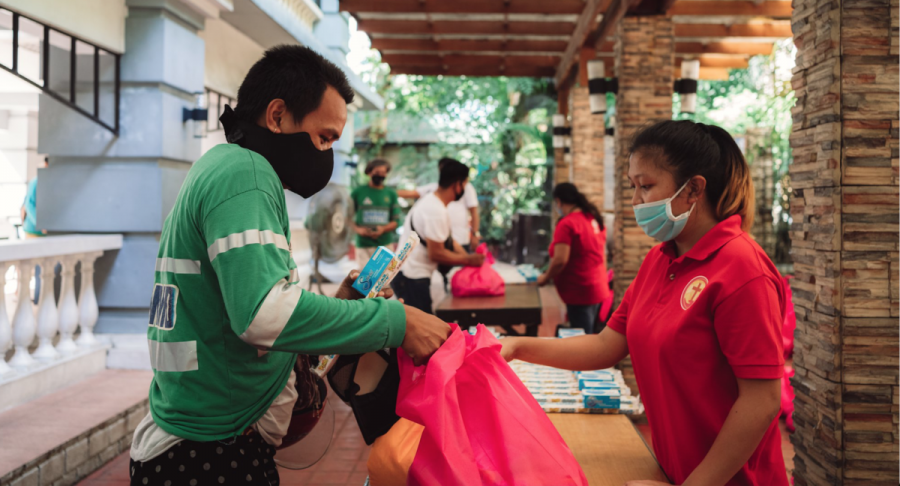
Reaching the Unheard to Overcome COVID-19: Religions for Peace Interfaith Youth in the Philippines
From behind the dim glow of a computer screen, a young Muslim student in the Philippines began her own fight against COVID-19. Enlisting the help of her Christian and Buddhist friends, they messaged houses of worship, identified families struggling to provide for themselves, and organized the delivery of hundreds of emergency food boxes.
Multi-religious Humanitarian Fund in the Press
- Devex: The enduring value of multireligious action
- AP NEWS: Religions for Peace Funds Multi-religious Actions on COVID-19 in 20 Countries
- Yahoo! Finance: Religions for Peace Funds Multi-religious Actions on COVID-19 in 20 Countries
- World Economic Forum: This funding approach can help social entrepreneurs weather the COVID-19 storm
- IPS News: Religion & the Pandemic: A Call Beyond the Here and Now
- Religion News Service: Religions for Peace funds multi-religious actions on COVID-19 in 20 countries
- Devex: Ties between UN, faith-based groups poised to grow during pandemic
- GHR Foundation: GHR Partner Religions for Peace Supporting Multi-Religious Actions on COVID-19 in 20 countries
- Fund for NGOs: Religions for Peace launches Multi-Religious Humanitarian Fund in Response to COVID-19
- CISION PR News Wire: Religions for Peace Funds Multi-religious Actions on COVID-19 in 20 Countries
- SIGNIS: Religions for Peace Launches the Multi-religious Humanitarian Fund in Response to COVID-19
